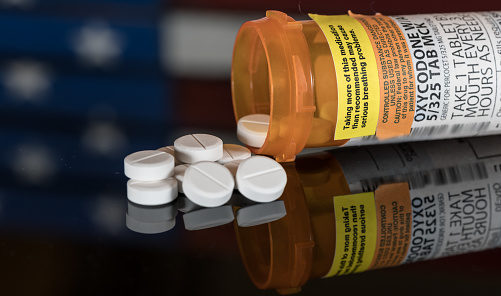
In a recent study, patients who underwent common orthopedic and urologic procedures used an automated text messaging system to report pain levels and opioid use. It turns out that many patients may have been overprescribed opioids, as they had unused medication after achieving pain management, the researchers discovered.
“Through simple text messaging we highlight a method which gives clinicians the information they need to reduce prescribing and manage pain,” said study author Anish Agarwal, MD, in a press release.
The study took place at an urban academic health care system and included patients who received postoperative opioid prescriptions following orthopedic and urologic procedures. Patients were enrolled in automated text messaging for four weeks postoperatively.
There were 919 patients in all, of whom 742 underwent orthopedic procedures. The orthopedic group had a median age of 48 years; 384 patients were women, 491 were white, and 514 were outpatients.
Among the orthopedic patients, the mean pain score on day four was 4.72, and by day 21, the mean change was –0.40; the mean ability to manage pain score on day four was 7.32, and the mean change by day 21 was –0.80. Orthopedic patients reported only using a median six opioid tablets, despite being prescribed a median of 20 tablets.
“We found that more than 60% of the opioid tablets prescribed went unused, which tracks with the team’s preliminary studies,” said Dr. Agarwal, a clinical innovation manager in the Penn Medicine Center for Digital Health and an assistant professor of Emergency Medicine. “We can begin to use these data in multiple ways: One approach would be to look at trends in patient-reported use and tailor future prescribing to meet the anticipated pain for the majority of patients undergoing a specific procedure.”
Senior study author M. Kit Delgado, MD, added, “This study has national implications, as it shows that patients only take a fraction of the amounts that we know are prescribed on average across the country. Previously we showed the median amount of opioid pills prescribed to be 40 tablets for knee arthroscopy and 20 tablets for prostate or bladder resections. We are in the process of rolling this automated text messaging platform to additional surgical groups within the health system and will continue to share our learnings to guide practice on a broader scale.”
The results of the study were published in JAMA Network Open.
The researchers wrote in their conclusion, “Patient-reported data collected through text messaging may support clinicians in tailoring prescriptions and guide shared decision-making to limit excess quantities of prescribed opioids.”
Credit: Original article published here.









